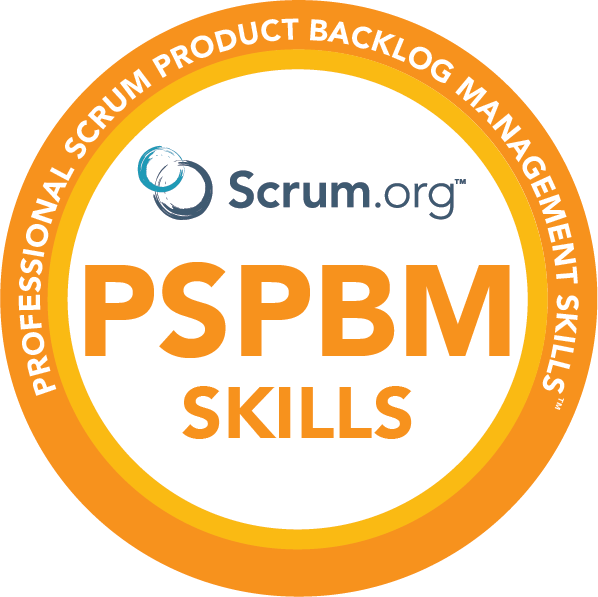Virtual class [English]
13-14.05.2024
Virtual class [Polish]
10-11.06.2024
Virtual class [Polish]
13-14.06.2024
Virtual class [Polish]
20-21.06.2024
Virtual class [Polish]
19-20.09.2024
Szkolenie online [PL]
10-11.10.2024
The workshop is delivered using an end-to-end case study where students work together to organize and simulate a scaled software development project.
Read more >>
It is intended for Product Owners who are looking to grow their knowledge and abilities.
Read more >>
Working in a series of Sprints, students break into Scrum Teams fulfilling all of the roles on a team to deliver, simulating real-life problems.
Read more >>
It is particularly beneficial for those people within an organization accountable for getting the most out of Scrum, including Scrum Masters, managers, and Scrum Team members.
Read more >>
The intention is to invite Scrum practitioners, especially Scrum Masters and Agile Coaches; however, the course is an excellent choice for experienced Product Owners and Managers who support Scrum Teams.
Read more >>
During the transformation, during which the organization becomes agile – “agile” – the role of the board, senior management, each person as a manager and each member of agile teams is essential.
Read more >>
Professional Product Owner is a much broader role than writing requirements and managing the Product Backlog.
Read more >>
Professional Scrum with Kanban is a unique course on Scrum's training market. The class debunks myths regarding Scrum and Kanban as well as shows that we are not talking about Scrumban.
Read more >>
I perceive this course as extremely valuable not only for UX or UI competencies but also for Product Owners, Agile Coaches, Scrum Masters, Development Team members, and Managers.
Read more >>
Is an empirical approach that helps organizations to achieve their goals, improve outcomes for customers and organizational capabiities and business results in uncertain, unpredictable environments.
Read more >>
Professional Scrum Facilitation Skills is an interactive one-day course created to help Scrum practitioners develop a facilitator’s skills and mindset.
Read more >>

During this course participants will learn techniques and methods to effectively manage a Product Backlog that clearly expresses the Product Goal and brings transparency to what is most valuable for the Scrum Team to work on to delight stakeholders and customers.
Read more >>
This text is coming soon!
Stay tuned!